The Future of Artificial Intelligence: A New Era of Innovation
The Future of Artificial Intelligence: A New Era of Innovation The landscape of artificial intelligence (AI) is evolving rapidly, heralding a new era of technological advancements that promise to revolutionize various sectors.
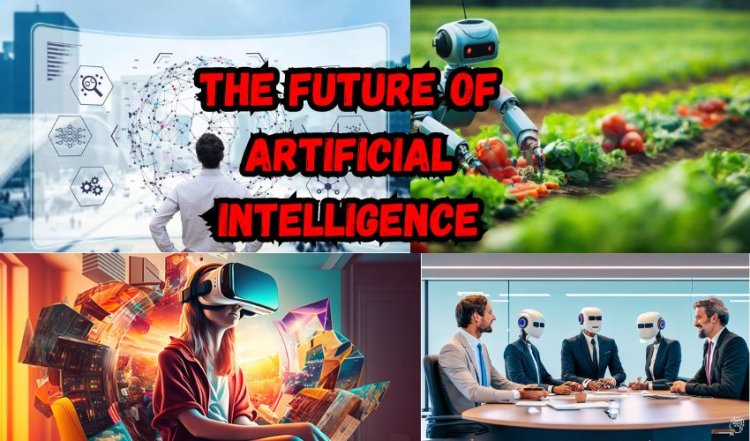
As we look towards the future of artificial intelligence, it becomes crucial to understand its potential impacts, advancements, and the predictions that will shape our world in the coming decades.
Introduction
Artificial intelligence, often abbreviated as AI, is a branch of computer science focused on creating systems capable of performing tasks that typically require human intelligence. These tasks include learning, reasoning, problem-solving, perception, language understanding, and decision-making. As technology advances, AI continues to integrate into various aspects of our lives, from virtual assistants like Siri and Alexa to complex algorithms that drive autonomous vehicles. The future of artificial intelligence is not just a topic of speculation but a rapidly approaching reality that holds the promise of transforming industries, enhancing human capabilities, and addressing some of the most pressing global challenges.
- The Future of Artificial Intelligence
The future of artificial intelligence is both exciting and complex. With rapid advancements in machine learning, neural networks, and data analytics, AI is poised to revolutionize every aspect of our daily lives. As we delve deeper into this subject, we must consider the myriad ways AI can impact different industries and the ethical considerations that accompany such transformative technology. From healthcare to education, transportation to finance, and beyond, AI's potential is boundless. However, with great power comes great responsibility, and the ethical use of AI will be paramount to its success.
AI in Healthcare
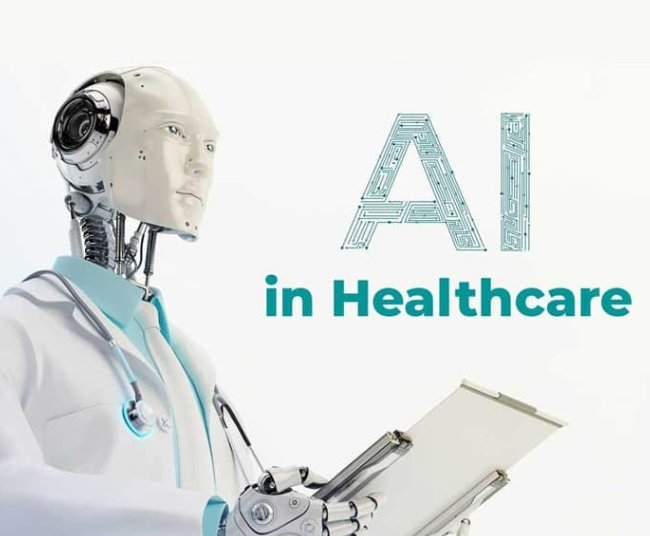
- Transforming Diagnostics and Treatment
Artificial intelligence has the potential to revolutionize healthcare by improving diagnostic accuracy and treatment outcomes. Machine learning algorithms can analyze vast amounts of medical data to identify patterns and predict disease progression. This capability allows for early detection of conditions such as cancer, cardiovascular diseases, and neurological disorders, significantly enhancing patient outcomes.
- AI-Powered Personalized Medicine
Personalized medicine, which tailors medical treatment to individual characteristics, is another area where AI is making significant strides. By analyzing genetic, environmental, and lifestyle factors, AI can help develop customized treatment plans that are more effective and have fewer side effects. This approach promises to revolutionize patient care, making treatments more precise and personalized.
- Revolutionizing Patient Care
AI is also transforming patient care by enabling remote monitoring and telemedicine. Wearable devices equipped with AI can track vital signs and alert healthcare providers to potential health issues before they become critical. This technology allows for continuous, real-time monitoring of patients, particularly those with chronic conditions, improving their quality of life and reducing the burden on healthcare systems.
AI in Education
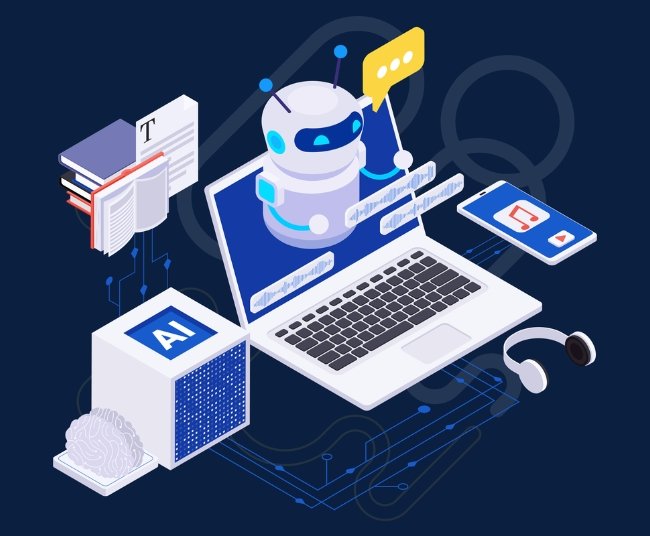
- Personalized Learning Experiences
In the realm of education, AI offers the potential to create personalized learning experiences tailored to individual student needs. Adaptive learning platforms use AI algorithms to assess student performance and adjust instructional content accordingly. This approach ensures that students receive the appropriate level of challenge and support, enhancing their learning outcomes.
- AI-Driven Curriculum Development
AI can also assist in curriculum development by analyzing educational data to identify gaps in knowledge and areas for improvement. This data-driven approach enables educators to design more effective and engaging curricula that meet the diverse needs of their students. By leveraging AI, educational institutions can improve the quality of education and better prepare students for the future.
- Enhancing Student Engagement
Engagement is a critical factor in student success, and AI has the potential to enhance engagement through interactive and immersive learning experiences. Virtual reality (VR) and augmented reality (AR) technologies, powered by AI, can create dynamic and interactive educational environments that captivate students' attention and foster a deeper understanding of complex concepts.
AI in Transportation
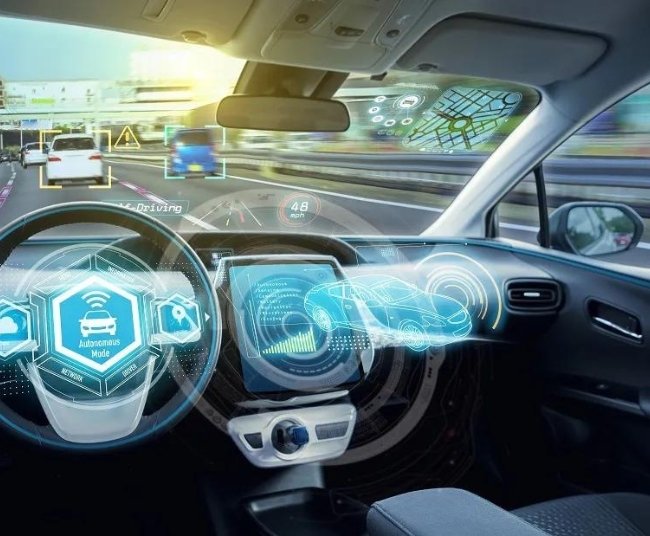
- Autonomous Vehicles
One of the most anticipated advancements in AI is the development of autonomous vehicles. Self-driving cars, powered by AI, have the potential to revolutionize transportation by reducing traffic accidents, decreasing congestion, and lowering emissions. These vehicles use a combination of sensors, cameras, and machine learning algorithms to navigate and make real-time decisions, promising a safer and more efficient transportation system.
- Traffic Management Systems
AI can also improve traffic management by analyzing data from various sources, such as traffic cameras and sensors, to optimize traffic flow and reduce congestion. Intelligent traffic management systems can predict traffic patterns, adjust signal timings, and provide real-time information to drivers, enhancing the overall efficiency of urban transportation networks.
- Predictive Maintenance in Transportation
In the transportation industry, predictive maintenance powered by AI can significantly reduce downtime and maintenance costs. By analyzing data from vehicles and infrastructure, AI can predict when components are likely to fail and schedule maintenance before issues arise. This proactive approach ensures the reliability and safety of transportation systems, benefiting both operators and passengers.
AI in Finance
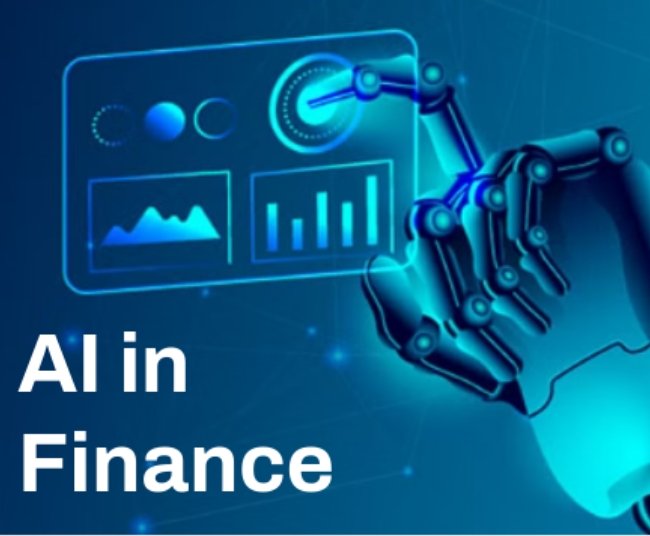
- Risk Management and Fraud Detection
In the financial sector, AI is transforming risk management and fraud detection. Machine learning algorithms can analyze vast amounts of transactional data to identify unusual patterns and detect fraudulent activities in real-time. This capability enables financial institutions to respond swiftly to potential threats, minimizing losses and enhancing security.
- AI-Enhanced Investment Strategies
AI is also revolutionizing investment strategies by providing advanced data analytics and predictive modeling. By analyzing market trends, economic indicators, and historical data, AI-powered systems can generate investment recommendations and optimize portfolio management. These insights enable investors to make more informed decisions and achieve better financial outcomes.
- Customer Service Automation
Customer service in the financial sector is being enhanced by AI-driven chatbots and virtual assistants. These AI systems can handle routine inquiries, provide personalized financial advice, and assist with transactions, improving customer satisfaction and reducing operational costs. As AI technology advances, these virtual assistants will become even more sophisticated, offering a higher level of service to customers.
AI in Manufacturing
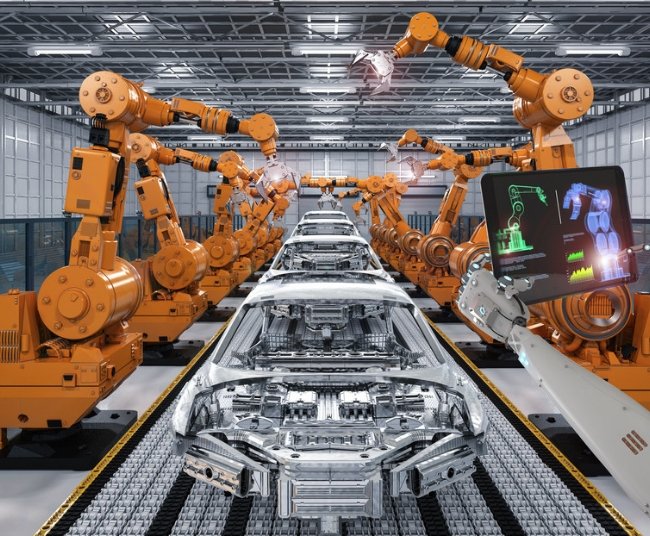
- Smart Factories
The concept of smart factories is becoming a reality with the integration of AI in manufacturing. AI-powered systems can optimize production processes, monitor equipment performance, and predict maintenance needs, resulting in increased efficiency and reduced downtime. By leveraging AI, manufacturers can enhance productivity and competitiveness in the global market.
- Predictive Maintenance in Manufacturing
Predictive maintenance, driven by AI, is transforming the manufacturing industry by preventing equipment failures and minimizing downtime. By analyzing data from sensors and machines, AI can predict when maintenance is needed and schedule it at the most convenient times. This approach ensures the smooth operation of manufacturing processes and reduces costs associated with unexpected breakdowns.
- Enhancing Production Efficiency
AI can also enhance production efficiency by optimizing supply chain management and inventory control. Machine learning algorithms can analyze demand patterns, forecast inventory needs, and optimize procurement processes, ensuring that manufacturers have the right materials at the right time. This efficiency reduces waste, lowers costs, and improves overall production performance.
AI in Entertainment
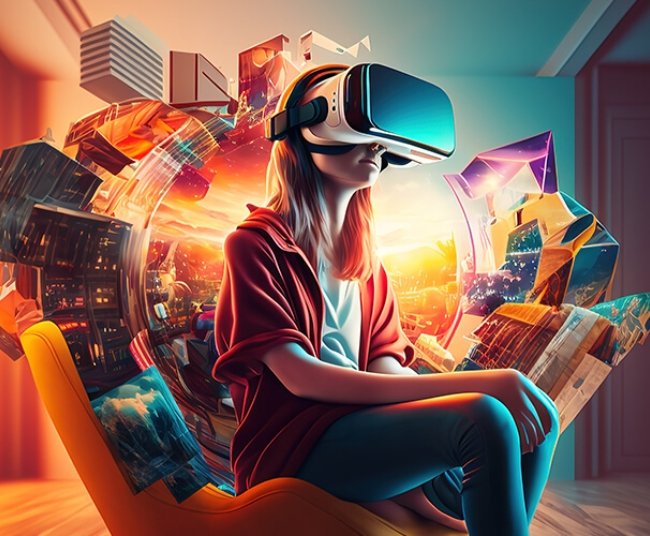
- AI-Generated Content
The entertainment industry is witnessing a revolution with the advent of AI-generated content. AI algorithms can create music, art, and even write scripts for movies and television shows. These AI-generated works are not only innovative but also offer new possibilities for creative expression and storytelling.
- Personalized Entertainment Experiences
AI is transforming the way we consume entertainment by providing personalized experiences tailored to individual preferences. Streaming services, for example, use AI to analyze user behavior and recommend content that matches their tastes. This personalized approach enhances user satisfaction and keeps audiences engaged.
- Revolutionizing the Gaming Industry
In the gaming industry, AI is driving innovation by creating more immersive and realistic gaming experiences. AI-powered characters and environments can adapt to player actions, providing dynamic and engaging gameplay. Additionally, AI can assist in game development by generating assets, testing game mechanics, and optimizing performance.
Ethical Considerations in AI
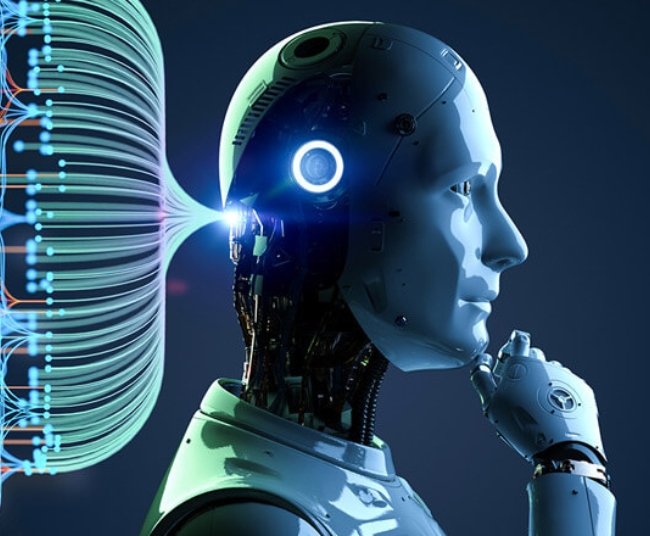
- Ensuring Privacy and Security
As AI becomes more integrated into our lives, ensuring privacy and security is paramount. AI systems often rely on vast amounts of data, raising concerns about data protection and user privacy. Implementing robust security measures and transparent data practices is essential to maintain trust and protect individuals' privacy.
- Addressing Bias and Fairness
AI systems can inadvertently perpetuate bias and inequality if not designed and implemented carefully. Ensuring fairness and eliminating bias in AI algorithms is crucial to prevent discrimination and promote inclusivity. This requires ongoing efforts to identify and mitigate biases, as well as the development of ethical AI frameworks.
- Developing Ethical AI Frameworks
Creating ethical AI frameworks is essential to guide the development and deployment of AI technologies. These frameworks should address issues such as transparency, accountability, and the societal impact of AI. By establishing ethical guidelines, we can ensure that AI is developed and used in ways that benefit society and uphold human values.
AI and the Workforce
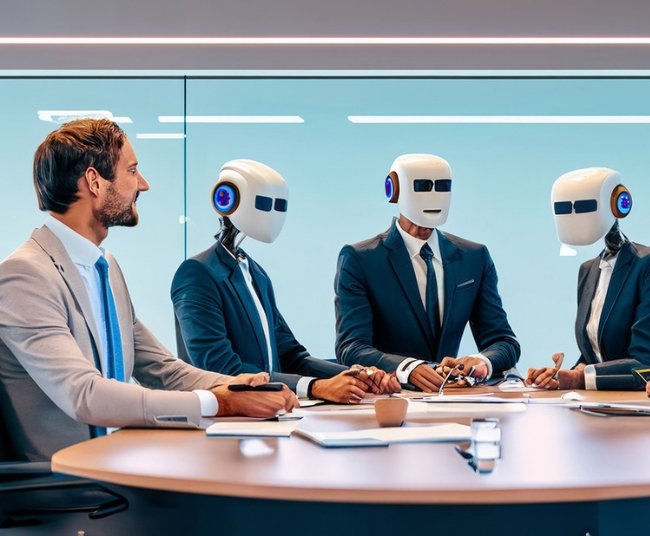
- The Changing Job Market
The rise of AI is transforming the job market, leading to concerns about job displacement and the future of work. While AI can automate routine tasks, it also creates new opportunities and demands for skills. Understanding the impact of AI on employment and preparing the workforce for these changes is crucial.
- Upskilling for an AI-Driven Economy
To thrive in an AI-driven economy, individuals and organizations must invest in upskilling and reskilling initiatives. Providing education and training in AI-related fields, such as data science, machine learning, and cybersecurity, will enable workers to adapt to new roles and remain competitive in the job market.
- Human-AI Collaboration
Rather than replacing humans, AI has the potential to enhance human capabilities and foster collaboration. Human-AI collaboration can lead to improved decision-making, increased productivity, and innovative solutions to complex problems. Embracing this partnership will be key to maximizing the benefits of AI in the workforce.
Future Predictions for AI
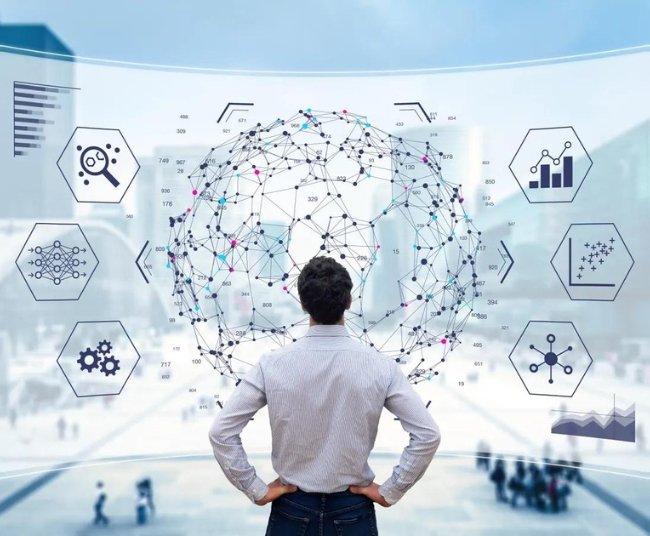
- AI in Everyday Life
As AI technology continues to advance, it will become an integral part of our everyday lives. From smart homes and virtual assistants to AI-powered healthcare and education, AI will enhance convenience, efficiency, and quality of life. These advancements will shape a future where AI seamlessly integrates into our daily routines.
- The Role of AI in Scientific Research
AI is poised to revolutionize scientific research by accelerating discoveries and solving complex problems. Machine learning algorithms can analyze vast datasets, identify patterns, and generate hypotheses, enabling researchers to make breakthroughs in fields such as medicine, climate science, and materials engineering.
- AI and Climate Change Solutions
Addressing climate change is one of the most pressing challenges of our time, and AI can play a critical role in developing solutions. AI can optimize energy consumption, monitor environmental changes, and predict the impacts of climate policies. By leveraging AI, we can develop more effective strategies to combat climate change and protect our planet.
AI in Retail

- Enhancing Customer Experience
Artificial intelligence is revolutionizing the retail sector by enhancing customer experience through personalized recommendations and targeted marketing. AI algorithms analyze customer data, such as browsing history and purchase behavior, to offer tailored product suggestions and promotions. This personalized approach not only increases customer satisfaction but also drives sales and customer loyalty.
- Inventory Management
AI-powered inventory management systems can optimize stock levels, reduce waste, and improve supply chain efficiency. By analyzing sales data and market trends, AI can predict demand and adjust inventory accordingly. This ensures that retailers have the right products in stock at the right time, minimizing stockouts and overstock situations.
- Automated Customer Service
AI-driven chatbots and virtual assistants are transforming customer service in the retail industry. These intelligent systems can handle routine inquiries, assist with product searches, and provide personalized shopping advice. By automating customer service tasks, retailers can offer faster and more efficient support, improving the overall customer experience.
AI in Agriculture

- Precision Farming
Artificial intelligence is driving the adoption of precision farming techniques, which use data analytics and machine learning to optimize agricultural practices. AI-powered systems can analyze soil conditions, weather patterns, and crop health to provide farmers with actionable insights. This data-driven approach enables more efficient use of resources, higher crop yields, and sustainable farming practices.
- Automated Machinery
AI-powered automated machinery, such as drones and robotic harvesters, is transforming the agricultural landscape. These machines can perform tasks such as planting, watering, and harvesting with high precision and efficiency. By reducing the need for manual labor, AI-driven automation can increase productivity and reduce operational costs in agriculture.
- Crop Monitoring and Disease Detection
AI technologies are enhancing crop monitoring and disease detection by analyzing data from sensors, satellite imagery, and drones. Machine learning algorithms can identify early signs of pest infestations, diseases, and nutrient deficiencies, allowing farmers to take proactive measures. This timely intervention helps protect crops, improve yields, and reduce the use of pesticides.
AI in Human Resources
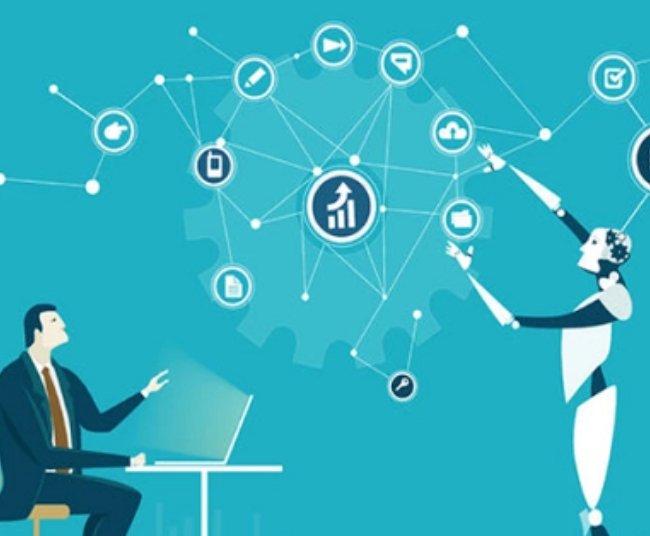
- Recruitment and Talent Acquisition
Artificial intelligence is transforming recruitment and talent acquisition processes by automating candidate screening and matching. AI-powered tools can analyze resumes, assess candidate qualifications, and identify the best fit for job openings. This reduces the time and effort required for recruitment, ensuring that organizations find the right talent more efficiently.
- Employee Engagement and Retention
AI can also enhance employee engagement and retention by providing personalized career development plans and identifying potential issues before they escalate. Machine learning algorithms can analyze employee performance, feedback, and engagement metrics to offer insights and recommendations. This helps organizations create a more supportive and motivating work environment.
- Training and Development
AI-driven training and development programs can offer personalized learning experiences tailored to individual employee needs. By analyzing performance data and learning preferences, AI can recommend relevant training modules and track progress. This ensures that employees acquire the necessary skills and knowledge to excel in their roles and contribute to organizational success.
AI in Legal Services
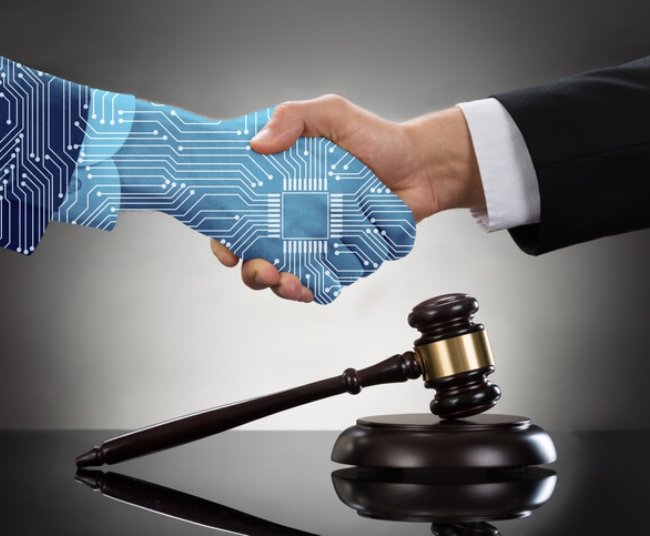
- Automating Legal Research
Artificial intelligence is revolutionizing legal services by automating legal research and document review processes. AI-powered tools can quickly analyze vast amounts of legal documents, case law, and statutes to provide relevant information. This reduces the time and effort required for legal research, allowing lawyers to focus on more strategic tasks.
- Contract Analysis and Management
AI technologies can streamline contract analysis and management by extracting key information and identifying potential risks. Machine learning algorithms can analyze contract terms, clauses, and obligations to ensure compliance and mitigate risks. This improves efficiency and accuracy in contract management, reducing legal and financial risks for organizations.
- Predictive Analytics in Litigation
AI-powered predictive analytics can assist lawyers in litigation by analyzing historical case data to predict outcomes and inform legal strategies. By identifying patterns and trends, AI can provide insights into the likelihood of success and potential risks in legal cases. This data-driven approach enables more informed decision-making and enhances the effectiveness of legal representation.
AI in Smart Cities
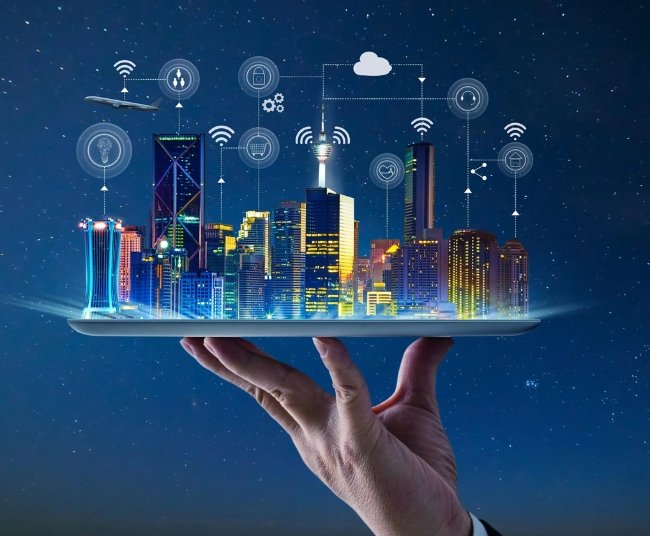
- Intelligent Infrastructure
Artificial intelligence is playing a crucial role in developing intelligent infrastructure for smart cities. AI-powered systems can optimize energy consumption, manage traffic flow, and monitor environmental conditions. This results in more efficient and sustainable urban environments, enhancing the quality of life for residents.
- Public Safety and Security
AI technologies are enhancing public safety and security in smart cities by enabling real-time surveillance and predictive policing. AI-powered cameras and sensors can detect unusual activities and alert authorities to potential threats. Additionally, machine learning algorithms can analyze crime data to identify patterns and predict high-risk areas, enabling proactive measures to prevent crime.
- Smart Utilities Management
AI-driven smart utilities management systems can optimize the delivery and consumption of essential services such as water, electricity, and waste management. By analyzing usage patterns and environmental data, AI can improve efficiency, reduce waste, and lower costs. This ensures the reliable and sustainable provision of utilities, supporting the overall functioning of smart cities.
Conclusion
The future of artificial intelligence is filled with promise and potential. As AI continues to evolve, it will transform industries, enhance human capabilities, and address global challenges. However, the ethical considerations and societal impacts of AI must be carefully managed to ensure that its benefits are realized for all. By embracing the opportunities presented by AI and addressing the associated risks, we can create a future where AI contributes to a better, more equitable world.
FAQs
1. What are the potential benefits of AI in healthcare?
AI can improve diagnostic accuracy, personalize treatment plans, and enable remote monitoring, enhancing patient outcomes and reducing healthcare costs.
2. How can AI transform the education sector?
AI can create personalized learning experiences, assist in curriculum development, and enhance student engagement through interactive and immersive technologies.
3. What are the ethical considerations associated with AI?
Key ethical considerations include ensuring privacy and security, addressing bias and fairness, and developing ethical frameworks to guide AI development and deployment.
4. How will AI impact the job market?
AI will automate routine tasks but also create new job opportunities. Upskilling and reskilling initiatives are essential to prepare the workforce for an AI-driven economy.
5. What role can AI play in combating climate change?
AI can optimize energy consumption, monitor environmental changes, and predict the impacts of climate policies, contributing to more effective climate change solutions.
6. What are the future predictions for AI integration in everyday life?
AI will become an integral part of everyday life, enhancing convenience, efficiency, and quality of life through applications in smart homes, healthcare, education, and more.
What's Your Reaction?




















